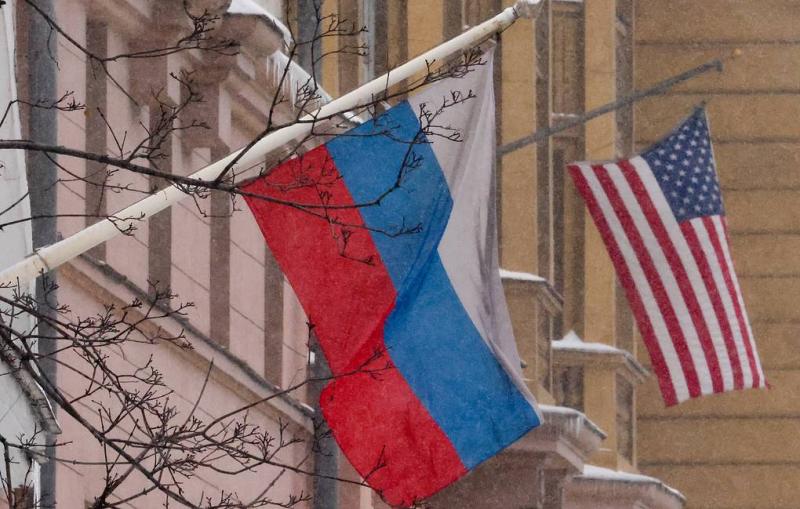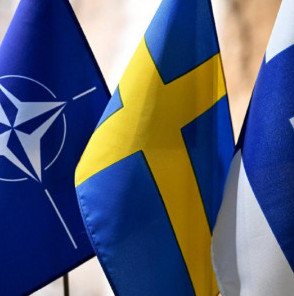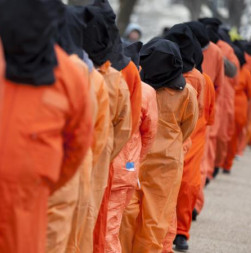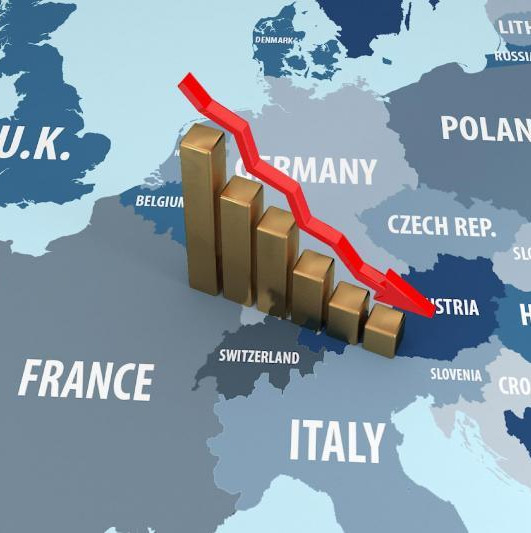
Russia and the United States make progress on the Black Sea deal at their Riyadh talks, and the divide over a French nuclear protection proposal widens in Eastern Europe. Meanwhile, a war plan leak sparks the first major scandal in the Trump administration. These stories topped Wednesday's newspaper headlines in Russia, according to TASS news agency.
Izvestia: Russia, US progress on Black Sea deal in Riyadh
Following more than 12-hour-long talks in the Saudi capital, Russia and the United States agreed to stop fighting in the Black Sea and allow for secure navigation there. Washington will work toward restoring Russia’s access to the global market for agricultural and fertilizer exports and broader access to ports and payment systems. The two sides will also develop measures for implementing the agreement between Russian President Vladimir Putin and his US counterpart, Donald Trump, to ban strikes on energy facilities, including nuclear power plants, hydroelectric dams, as well as oil and gas pipelines.
Ukraine, which held separate bilateral talks with the United States at the same venue, agreed to a maritime and energy ceasefire. The Russian Foreign Ministry’s envoy Rodion Miroshnik told Izvestia that other Black Sea countries could also join the negotiating process.
Monday’s talks spanned beyond the 2022 grain accord, as they also included discussions on regional security issues and the Black Sea situation. The fact that high-profile officials, Grigory Karasin, Chairman of the Federation Council Committee on International Affairs, and Sergey Beseda, Advisor to the Director of the Federal Security Service (FSB), represented Russia at the talks indicates an attempt to "test the waters" on a broader agenda, Dmitry Novikov, Associate Professor and Head of the Laboratory of Political Geography and Modern Geopolitics at the Higher School of Economics, noted.
However, the lack of any mechanisms to compel Kiev to implement the agreements remains a key challenge to progress toward peace. "Ukraine will use any means to put obstacles in the way of communication between Russia and the United States," Novikov believes.
Whether conditions for the lifting of sanctions on Rosselkhozbank are met or whether Washington can keep Kiev from provocations will also be key. According to Miroshnik, a detailed discussion on all these aspects must be held, and those should not be based on a whim. The next few months will show if the sides can move from "testing the waters" to building a sustainable security architecture.
Izvestia: Divide over deployment of nukes widens in Eastern Europe
Bulgaria will not agree to station French nuclear weapons on its soil if the government proposes such an idea, Angel Georgiev, deputy chairman of the Bulgarian parliament’s Foreign Policy Committee from the opposition Revival party, assured Izvestia. Earlier, French President Emmanuel Macron offered to extend a nuclear shield to Europe.
Poland expressed its willingness to consider welcoming France’s nuclear deterrence, and Lithuania, too, supported Macron’s proposal. While leader of the Christian Democratic Union (CDU) and prospective Chancellor Friedrich Merz ruled out a nuclear arsenal for Germany, he has promised to talk with France and Britain about joint nuclear arrangements.
However, some in Eastern Europe oppose a potential militarization of the region. Slovak Prime Minister Robert Fico, for one, turned down France’s initiative, and acting Romanian President Ilie Bolojan considers it unlikely that any nukes will be stationed close to NATO’s eastern border, despite Poland’s request.
The French nuclear arsenal has not changed over the past decade, and France currently has about 290 nuclear warheads, according to the Bulletin of the Atomic Scientists. Nor has the Fifth Republic halted efforts to upgrade those, unlike many other Western countries. And France could boost its arsenal, especially since Paris possessed quite advanced intermediate-, medium-and short-range ballistic missiles in the Cold War era, Dmitry Stefanovich, researcher with the Center for International Security at the Institute of World Economy and International Relations, told Izvestia.
US President Donald Trump has said he would rather opt for denuclearization: "I know Russia and we have by far the most [nuclear weapons]. China will have an equal amount within 4-5 years. It would be great if we could all denuclearize because the power of nuclear weapons is crazy."
If France negotiates sharing its nuclear weapons with a European country, Paris would need substantial resources and time to prepare the infrastructure. Amid dialogue between the United States and Russia, France and Great Britain are emerging as leaders of the camp of anti-Russian hawks. And a potential move to deploy French nukes in Eastern Europe will pose new threats to Russia and only intensify the conflict.
Vedomosti: Trump administration faced with major scandal over war plan leak
US President Donald Trump has defended his National Security Advisor Mike Waltz in the wake of a chat group leak to a journalist that, Politico wrote, put the senior official’s future in doubt. In a phone interview with NBC News on Tuesday, Trump said Waltz "has learned a lesson." Prior to that, other high-ranking Republican officials, too, stood by Waltz. House Speaker Mike Johnson told Politico that Waltz should "absolutely not" resign.
The scandal that could force Waltz out erupted on Monday after The Atlantic editor, Jeffrey Goldberg, had been added to a Signal group chat with some senior members of the Trump administration that discussed a military operation against Yemen’s Houthis.
So far, Trump has been reluctant to fire Waltz or any other official on his team as he values them, Senior Research Fellow at the Institute for US and Canadian Studies Dmitry Kochegurov explained. "Trump picked them for their loyalty to his plan to dismantle the `deep state’, so the [US] president would not risk expelling anyone now and finding a replacement later," the expert maintained.
Director of the Center for North American Studies at the Institute of World Economy and International Relations Victoria Zhuravleva argued that, on the one hand, Trump is trying to keep the bar of an "ideal administration" high, and, on the other hand, he would not like to dismiss a valuable official. "This situation does not pose a direct political threat to either Trump or his presidency," Zhuravleva told Vedomosti.
While Democrats have intensified their criticism of Trump for the chat leak, Republican Gregory Meeks, the ranking member of the House Foreign Affairs Committee, called on the chairman of the committee, Republican Brian Mast, to immediately hold a hearing on the Trump administration’s "rank incompetence," The Hill reported. However, according to Times Magazine, many fellow Republicans have reacted more tepidly to the situation.
Vedomosti: Israel draws up plans for long-running Gaza occupation
Israel’s army and politicians have proposed "a long-running occupation" of the Palestinian enclave to eliminate the Palestinian radical group Hamas, the Financial Times (FT) wrote, citing sources. The plans for a renewed invasion were put forward by Eyal Zamir, the new chief of the Israeli General Staff, and supported by far-right politicians in Prime Minister Benjamin Netanyahu’s cabinet.
The FT broke the news as The Wall Street Journal (WSJ) reported that Israel is expanding its ground operations across the Gaza Strip. Netanyahu and his top aides believe that Israel must defeat Hamas on the battlefield before a political decision on Gaza is drafted, people familiar with the Israeli government’s thinking told the newspaper.
Western media reports came as rumors emerged that Israel is getting ready to incorporate the occupied Palestinian West Bank.
This plan does not look realistic to Lyudmila Samarskaya, researcher at the Center for Middle East Studies at the Russian Academy of Sciences’ Institute of World Economy and International Relations, for humanitarian reasons, too.
Ruslan Suleimanov, a Middle East expert, agrees that Israel would hardly venture any radical step in Gaza, given Israeli hostages are still in Palestinian captivity. Earlier, Hamas threatened to kill the remaining captives should the Israeli army launch a large-scale offensive in the enclave. "For this would risk a protracted political crisis in the country," the expert added.
Israeli control of the Gaza Strip would likely lead to increased radicalization of residents of the enclave, Ivan Bocharov, a program manager at the Valdai Discussion Club, told Vedomosti. "This will not solve the Palestinian problem. On the contrary, this would give radical Palestinian movements more arguments to continue their fight against Israel, and terrorism-related risks would increase, too," the expert said. According to him, furthermore, this would complicate the process of normalizing ties between Israel and Arab nations.
Rossiyskaya Gazeta: Why Trump and US now need OPEC+ deal more than Russia does
OPEC+ has received updated compensation plans from Saudi Arabia, the UAE, Oman and Kuwait. Earlier, a schedule was issued for Russia, Iraq and Kazakhstan to make further oil output cuts to compensate for exceeding agreed production levels.
While this hardly indicates a major decline in discipline within the group, its significance has clearly reduced for oil allies. Meanwhile, the deal is becoming key for the new US administration and President Donald Trump, who called for increasing oil production quite recently, for unless OPEC+ cuts oil production, his plans to transform the United States into an energy superpower will collapse.
Brent is currently trading between $70 and $73, which is too low for the majority of oil exporters at OPEC+, especially the two leaders of the alliance, Russia and Saudi Arabia. While oil prices of above $80 per barrel would be optimal for Russia, Saudi Arabia and Iraq would need oil to trade higher. Meanwhile, Russia needs prices to hover around $70 to boost its shale oil output and develop new offshore deposits. With WTI currently trading at $67 to $69 per barrel, the OPEC+ deal helps support oil prices at a level that is favorable for the United States.
National Energy Security Fund Director Konstantin Simonov explained to Rossiyskaya Gazeta that a collapse of the OPEC+ deal or the onset of a price war would be a worst-case scenario for US oil majors. As regards Russia, falling oil prices would hurt its coffers and undermine the oil sector, he warned.
The oil alliance is currently quite cautious amid uncertainty over the US trade and monetary policy, and unpredictable actions on the part of the Trump administration keep the entire global market on edge, which is why OPEC+ is pursuing a wait-and-see strategy. Brent will fluctuate between $65 and $75, with growing demand in Asia, particularly in India, propping up oil prices, Alina Poptsova, a stock market analyst at Alfa-Capital, predicts.
TASS is not responsible for the material quoted in these press reviews









